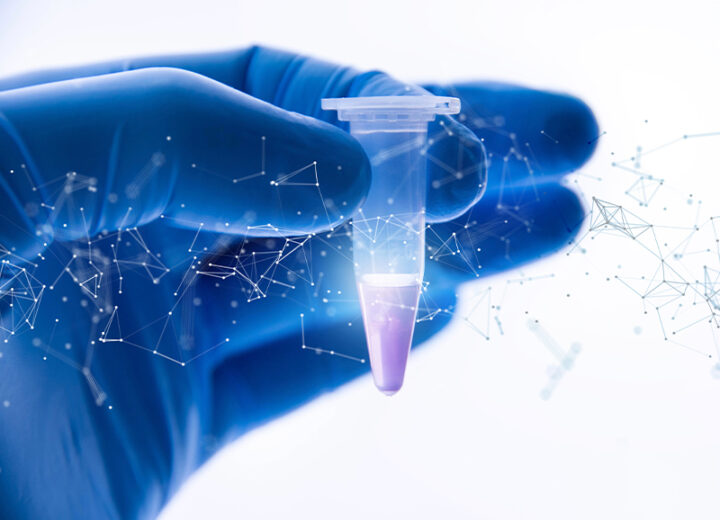21 August 2024
The role of affordability in recombinant protein production

The biopharmaceutical industry has experienced rapid growth over the past few decades, driven by advances in biotechnology and a deeper understanding of human biology.
Recombinant proteins lie at the heart of many groundbreaking treatments. However, the high cost of producing these proteins often limits their accessibility and availability. Various factors contribute to these high costs, making it challenging to provide affordable treatments. For example, R&D expenses, production costs, regulatory compliance, and market competition.
Moreover, this financial barrier restricts patients’ access to life-saving medicines. On a global scale, this hinders efforts to improve healthcare outcomes.
At Cocoon, we believe that affordable recombinant protein production is necessary. Not only is it essential for expanding access, but it also fosters innovation in life sciences and biotech. By leveraging cutting-edge technologies and cost-effective production methods, we strive to make high-quality recombinant proteins accessible to more people, ultimately contributing to a healthier, more equitable, world.
Learn more below about how affordability is shaping the future of recombinant protein production and how we at Cocoon are leading this transformation.
The importance of affordability in recombinant protein production
Affordability is a critical factor in recombinant protein production for several reasons:
Accessibility
Affordability in recombinant protein production is a game-changer for researchers. When production costs are reduced, researchers gain access to high-quality recombinant proteins that might otherwise be prohibitively expensive.
This accessibility allows for broader and more regular experimentation, enabling scientists to explore a wider range of research topics and develop new therapeutic approaches.
On the other end of the research lifecycle, more accessible development means better access for the people who need these treatments. Enabling innovation brings more life-saving medicines and treatments to patients, sooner, and reducing the costs means more people can afford these treatments.
You may also like: The real-world impact of accessible protein production
Innovation
Cost-effective production methods enable more researchers and companies to develop innovative protein therapeutics.
By reducing the financial barriers to entry, affordability fosters a culture of innovation and collaboration in the biotechnology sector. Researchers can explore novel approaches to treat complex diseases, develop personalized medicine, and investigate new therapeutic targets.
The reduction in production costs allows small and medium-sized enterprises (SMEs) and academic institutions to participate in cutting-edge research, driving a wave of innovation that benefits the entire industry and leads to the discovery of new therapies and treatment modalities.
Learn about the advancements in healthcare that recombinant proteins are enabling.
Expansion
Making recombinant proteins affordable opens new markets and applications, expanding the reach of biopharmaceuticals beyond traditional use cases.
This includes applications in industrial biotechnology and medical research.
In industrial biotechnology, these proteins can be used in enzyme production, biofuels, and biodegradable materials, promoting sustainable practices. In medical research, wound healing using recombinant proteins, specifically growth factors, is an area of focus for many researchers.
By broadening the scope of recombinant protein applications, we can address pressing global challenges and unlock new opportunities for economic growth and development.
What are the economic challenges of recombinant protein production?
We’ve discussed why making recombinant proteins affordable is ideal, so now let’s question why they aren’t currently?
Producing recombinant proteins involves a complex process that includes inserting a recombinant DNA sequence encoding the protein of interest into a host cell. The host cell, typically bacteria, yeast, or mammalian cell culture, acts as a biological factory to produce the protein.
This process is traditionally lengthy, difficult to scale and uses energy-intensive machinery. Often, proteins fail to express at all. These factors and more have made recombinant protein production expensive.
There have been advancements in recent years which have helped reduce expenditure but, despite this, recombinant proteins remain expensive due to several factors:
- Research and development costs: developing a new biopharmaceutical requires substantial investment in research and development, often spanning several years. This includes identifying target proteins, optimizing expression systems, and conducting extensive preclinical and clinical trials.
- Production costs: scaling up protein production from the lab to industrial scale involves significant costs, including purchasing equipment, maintaining cell cultures, and ensuring stringent quality control standards. Additionally, some proteins require specific post-translational modifications, which can further increase production costs.
- Regulatory compliance: biopharmaceuticals must meet strict regulatory requirements to ensure safety and efficacy. The cost of regulatory compliance, including documentation, testing, and inspections, can be substantial.
- Market competition: while the demand for biopharmaceuticals continues to grow, market competition and pricing pressures can impact the profitability of recombinant protein production, necessitating more cost-effective solutions.
Our approach to affordable recombinant protein production
At Cocoon Bioscience, we’re committed to revolutionizing recombinant protein production by making it more affordable and accessible.
Our approach leverages cutting-edge technologies and a unique approach to overcome the economic challenges of protein production.
Innovative expression system
By using cocoons as natural bioreactors, we’re replacing expensive, energy-intensive machinery to produce high yields of high-performance, quality complex proteins. In fact, we achieve a better rate of expressing complex proteins and can even express enzymes that other platforms fail to.
Our focus on expression system innovation ensures that we remain at the forefront of biopharmaceutical production, delivering cost-effective solutions that meet the diverse needs of our clients.
A commitment to optimization
At Cocoon Bioscience, we use cutting-edge bioprocess optimization techniques to streamline production and significantly reduce costs.
Our approach includes refining purification processes and scaling methodologies to ensure cost-effective and efficient biomanufacturing. Our bioprocess engineers meticulously identify critical process parameters and employ data-driven optimization strategies.
By integrating automation, we enhance process robustness and ensure consistent product quality. Our commitment to bioprocess optimization enables us to produce high-quality recombinant proteins more affordably, meeting the demands of industries like biopharmaceuticals and cultivated meat, where cost-effectiveness is crucial.
Ensuring affordability, maintaining quality
At Cocoon Bioscience, maintaining the highest quality standards is imperative.
Our rigorous quality control processes ensure that our recombinant proteins meet purity and safety criteria. We are dedicated to delivering products that industry leaders, innovators and researchers can rely on.
Our comprehensive quality management system covers all stages of production, from raw material sourcing to final product release. By adhering to international quality standards, we ensure the safety and efficacy of our products, reinforcing our reputation as a trusted partner in the biopharmaceutical and life sciences industries.
We’re pioneering affordable recombinant protein production
Affordability in recombinant protein production is crucial for unlocking the full potential of biopharmaceuticals and driving innovation.
By addressing the economic challenges of protein production, we’re leading the way in making high-quality recombinant proteins more accessible to researchers, healthcare providers, and patients worldwide.
Our commitment to affordability extends beyond cost reduction. Overall, it encompasses a holistic approach to innovation, collaboration, and sustainability. By prioritizing affordability, we are empowering the next generation of biotechnology leaders and driving meaningful change in the life sciences.
To learn more about our innovative approaches and explore our wide range of recombinant protein solutions, visit our solutions page today.


